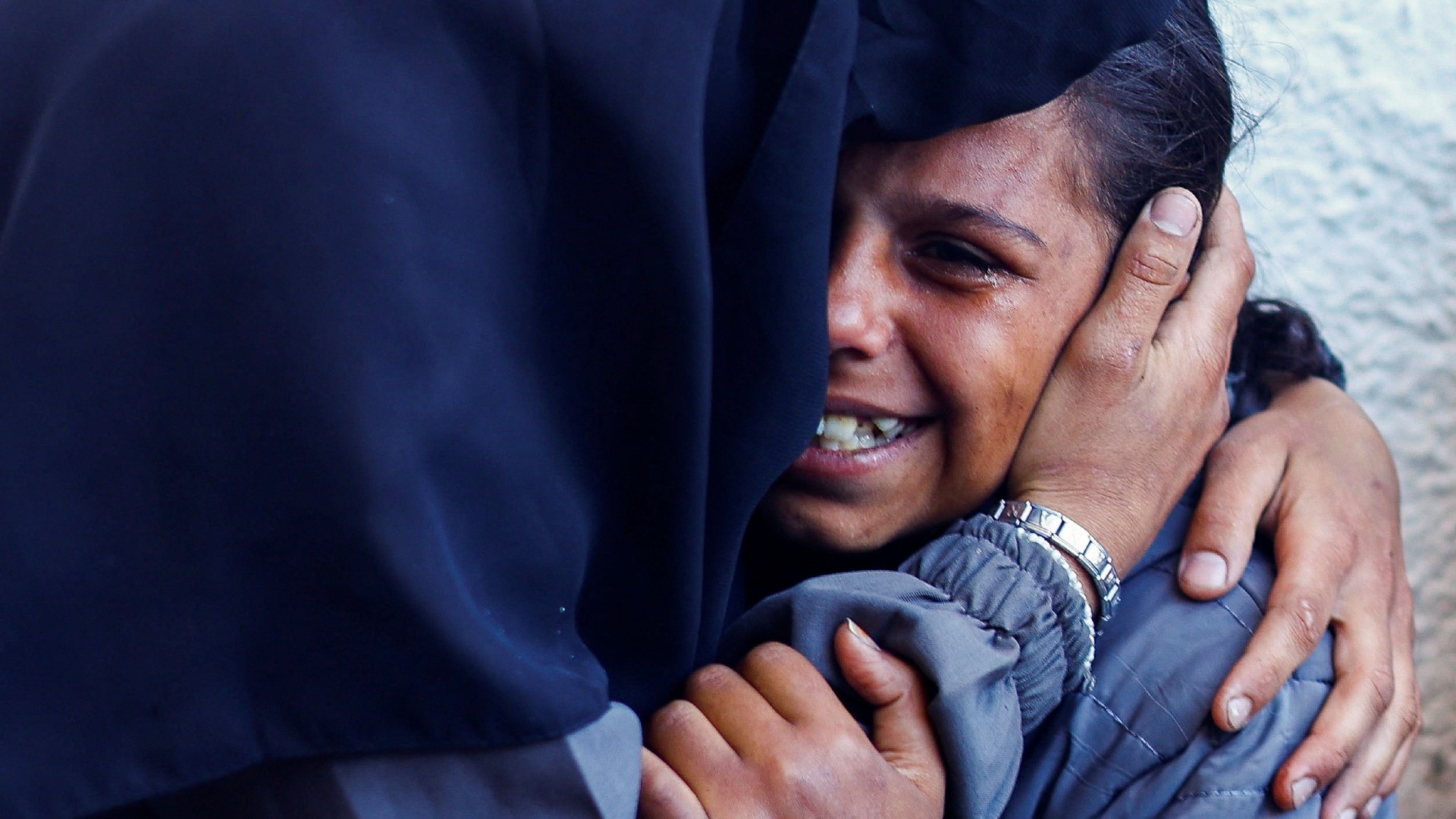'Not possible': Palestinians too 'starved' to leave Rafah
Orders to move out of the city are meaningless to people 'unable to walk' due to starvation, aid workers say

Three days ago, the Israeli military dropped flyers ordering displaced people and residents of Rafah to leave.
In the orders where people were told to move out of Rafah, the military said it was “about to operate with force against the terror organisations in the area”.
A UN estimate says there are 1.2 million people sheltering in dire conditions in Rafah, Gaza's southern city. The "full-blown famine" that has taken hold in the north of Gaza has spread to the south, Cindy McCain, the head of the World Food Programme, confirmed over the weekend.
There are roughly 200 Palestinians that are being forcibly displaced from Rafah every hour, the UN Relief and Works Agency for Palestine Refugees (Unrwa) said on Wednesday.
During an online press briefing, medical doctors and humanitarian aid workers reporting from the ground in Gaza spoke about the impossible feat of moving people from Rafah, as people are ridden by famine plus a collapsed transportation and healthcare system.
"There are children and elderly that are so starved that they can barely walk. These people cannot just relocate to another area, to so-called 'safe zones'. It is not possible," Alexandra Saieh, head of humanitarian policy from Save the Children, said.
Several aid workers have expressed that there is no "safe" area in the Gaza Strip for people to relocate to. "The concept of safe zones is a lie," Helena Marchal, from Medecins du Monde, said.
'There are children and elderly that are so starved that they can barely walk. These people cannot just relocate to another area'
- Alexandra Saieh, Save the Children
Restricted movement
Aid workers also reiterated the difficulty of getting aid both into Gaza and then distributing it. Both the Rafah and the Kerem Shalom crossings, through which most aid reached the besieged Strip, have closed since Sunday evening.
Roads across Gaza are largely destroyed or blocked by people sheltering, contributing to the difficulty of movement of both goods and people. Only a very limited number of routes, especially between the north and south, are available for humanitarian use, Jeremy Konyndyk, from Refugees International, explained.
Another issue is overcrowding.
"In Deir al-Balah and the Mawasi area on the outskirts of the Rafah and Khan Younis governorates, there is barely any space. There are tents everywhere, on the beach, on the sidewalks, the streets, the graveyards, the courtyards of the hospitals, in the courtyards of the schools," Ghada Alhaddad, from Oxfam International, said.
Saieh explained that it took her team six weeks and four failed attempts to move a couple of hundred food parcels from Rafah to the north of Gaza.
"One litre of fuel cost $40 yesterday," according to Ranchal.
Fuel enters through the Rafah crossing.
"The whole aid operation runs on fuel. If the fuel is cut off, the aid operation collapses," Konyndyk said.
Severe malnutrition
Professor John Maynard, a surgeon from the UK who has spent the last two weeks operating on Palestinians in Gaza, highlighted complications from a direct result of malnutrition.
'I had two patients, 16 and 18, both of whom had survivable injuries, [and] both of whom died last week as a direct result of malnutrition'
- Nick Maynard, surgeon
"I had two patients, 16 and 18, both of whom had survivable injuries, [and] both of whom died last week as a direct result of malnutrition."
His colleague Dr Kahler, spoke of a "tipping point" after six-eight months, "the immunological system breaks down".
"It is at that time when infections and complications from malnutrition will start," he added.
A famine, one aid worker explained, requires three thresholds: a sustained, severe lack of access to food, high levels of child malnutrition, and highly elevated mortality as a result of famine and disease.
All thresholds have been passed in the north, Konyndyk stated.
"If there is a Rafah invasion, this will certainly push things past the tipping point, and we will see a skyrocketing mortality related to the famine."
https://www.middleeasteye.net/news/not-possible-palestinians-starved-unable-leave-rafah-gaza

0 Comments:
Post a Comment
Subscribe to Post Comments [Atom]
<< Home